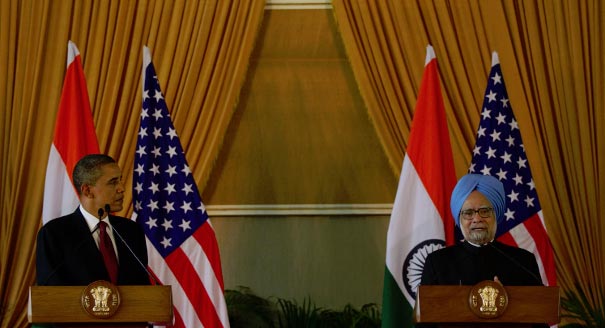Registration
Thank you!
You will receive an email confirming your registration.
IMGXYZ3682IMGZYXA significant component of U.S. diplomatic efforts is encouraging security cooperation. In mid-April, Assistant Secretary of State for Political-Military Affairs Andrew J. Shapiro traveled to India and Bangladesh to resume the Political-Military Dialog aimed at enhancing bilateral security cooperation with each of these countries. In a closed door meeting with South Asia scholars and policy analysts in the Washington, D.C. area, Shapiro addressed the results of those meetings. Carnegie’s Ashley J. Tellis moderated.
Key Points of Discussion
- Part of the Mandate: Shapiro noted that security cooperation is an essential part of the State Department’s mandate. When the United States sells a country a defense system, that country is not just buying a product, he argued. They are also buying into a long-term relationship with the United States. As a result, U.S. security cooperation often serves to undergird its diplomatic relationships.
- India: In India, Shapiro traveled to New Delhi for the first United States-India Political-Military discussions since 2006. He noted that the United States and India are building a robust relationship based on a number of shared security interests, and he stressed that the two countries’ defense relationship has become a major pillar of the overall strategic partnership.
- Bangladesh: In Bangladesh, Shapiro had the opportunity to discuss the bilateral defense relationship between the two countries. He stated that the relationship has become one of the most robust in South Asia over the last decade, and noted that Bangladesh is a key player in security maintenance in the Bay of Bengal, counterterrorism efforts, and international peacekeeping.
